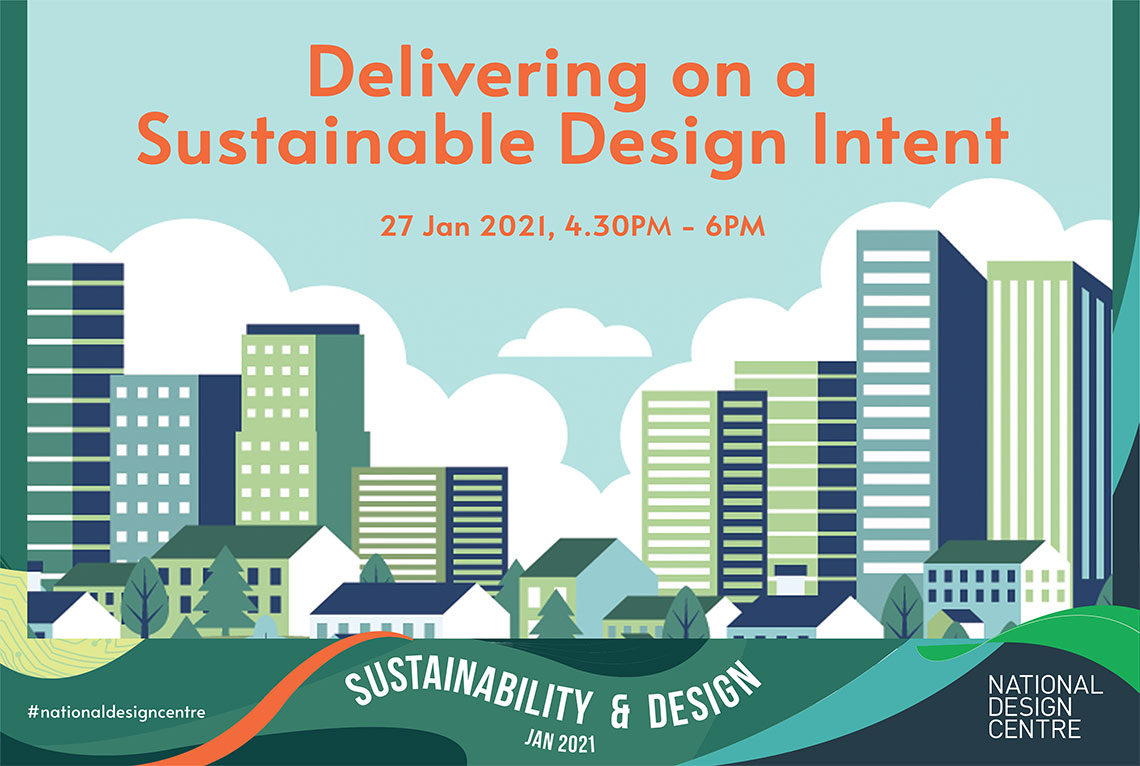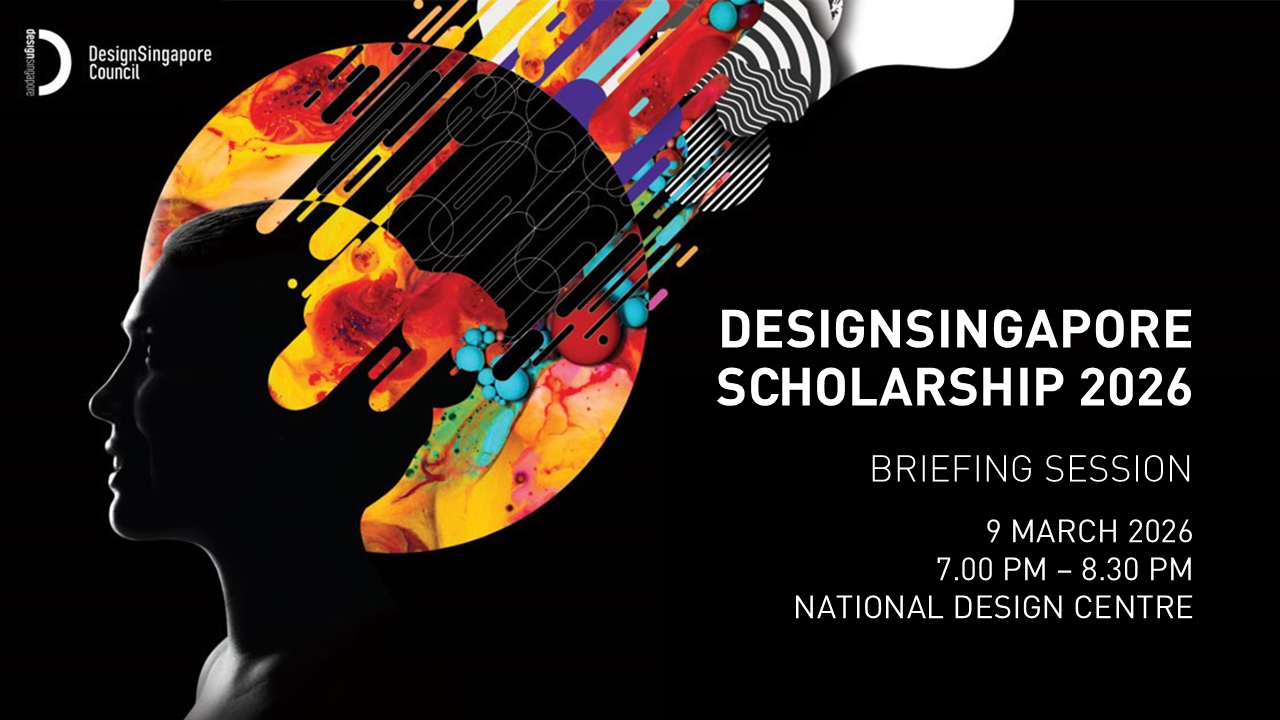Delivering on a Sustainable Design Intent

Event details
-

Date and Time
27 Jan 2021
04:30 PM – 06:00 PM
-

Location
Zoom Webinar
-

Event Fee
Free
Event Recap
Watch the webinar recording below now!
From ‘need to have’ to ‘nice to have’ – so easily, the best intentions can have their associated sense of urgency diminished when inconveniences or barriers to their achievement arise. Following through on a sustainable design intent isn’t always easy, but there’s no time to waste in tackling climate change and other sustainability issues. So what’s getting in the way?
What are the biggest barriers to achieving more sustainable cities, buildings, interiors and products? Are there viable ways to overcome them? When do top-down regulations need to be bolstered by bottom-up sustainability initiatives?
In this webinar, a diverse panel of speakers (representing both ends of the spectrum) tackled the many advocacy, ethical and economic factors at play in the pursuit of sustainable design.
Key Takeaways
- Rethinking ‘Value’
We need to rethink how we apply ‘value’. There’s the cost of things and the value of things – real and perceived. The market doesn’t necessarily value what is good in the long term. Top-down incentives can help move the market another way. - Developing an Internal Compass
A bottom-up approach to committing to principles in one’s own design practice is a good opportunity to map the road to better outcomes. Developing an internal compass is crucial to developing a genuine mindset about sustainability. - Balancing Cost, Value and Time
Have a conversation at the start of a building project with your client and consultants about upfront savings versus incremental gains in the long term. Buildings are an investment for decades. The conversation about long-term performance is about more than up-front price point. - Developing Renewable Supply Chains
A bottom-up approach to developing renewable materials in our region (such as those made with reconstituted plantation timber) can help kickstart the development of a more sustainable supply chain and allow us to bring new consideration to product lifecycles. - Regional Challenges for the Furniture Sector
South-East Asia has been slow to act on sustainable furniture production, and there’s a precarious balancing act to be had with factors such as cost of living in this region. But Singaporean companies can take the lead in developing more sustainable business models. There a need to develop consumer demand for sustainable furniture products. - Singapore’s Green-Building Vernacular
There’s a new vernacular of buildings developing in Singapore – laden with greenery and with natural ventilation. Ratings and regulations have helped push us in that direction. The Singapore approach can be applied regionally, and Singapore can be seen as a leader. - Economies of Scale, for Who?
Cost comes down with economies of scale, and incentive schemes can help encourage certain directions. It is harder for small studios to gain economies of scale when specifying materials; perhaps a collective effort is needed. - Project Financing is Changing
Climate risks are starting to be factored into the structure of large-scale project financing. It will soon cost more to finance a project that doesn’t have sustainable goals or metrics. - Taking Responsibility
We can’t preserve the status quo of practice. If we do, we need to accept responsibility that we are preserving the root causes of the social and ecological crises we find ourselves in today. - Achieving Systemic Change
Systemic change in how the whole design ecosystem operates will be driven from both the top down and the bottom up. Top-down incentives or regulations have been useful to date, but they shouldn’t become a crutch. Today, the bottom-up approach is levelling up, and the private sector is starting to push the government.
Presented on 27 January 2021 by DesignSingapore Council and supported by the National Design Centre.
Details
Following through on a sustainable design intent isn’t always easy, but there’s no time to waste in tackling climate change and other sustainability issues.
What are the biggest barriers to achieving more environmentally sustainable cities, buildings, interiors and products? Are there viable ways to overcome them? When do top-down regulations need to be bolstered by bottom-up sustainability initiatives?
A panel of designers tackles the many advocacy, ethical and economic factors at play in the pursuit of sustainable design.
About the Panel
- Razvan Ghilic-Micu, Associate, Hassell
Razvan is an Architect with a keen interest in innovation and agility, and an advocate for resilience by design. At Hassell he is involved in designing new-generation working and mixed-use environments in Singapore and across Australasia. He is a graduate of Princeton University with over a decade of professional experience in Singapore, Shanghai, New York and Toronto. Razvan balances practice with ongoing involvement in the Singapore Institute of Architects, where he serves as the Chief Editor of The Singapore Architect magazine. He also leads a Design Studio Unit at the National University of Singapore. - Pan Yi Cheng, Design Director and Co-founder, Produce
Pan Yi Cheng is the Design Director and co-founder of Produce. Established in 2013, Produce was set up as a design studio with a prototyping workshop to deliver highly robust and bespoke design solutions from concept to construction. Since establishment, Produce has completed a number of highly acclaimed and publicised projects including, Wild Rocket, Kki Sweets and the Little Drom Store, and Monoform Living. Prior to this, he graduated with honours from the Architectural Association in London and was chosen as one of the top eight UK graduates in 2006. He has accumulated more than 10 years of working experience in the fields of architecture and academia, working with renowned international firms such as Arup Advanced Geometry Unit, TP Bennett, Serie Architects and UNStudio. - Emily Sim, Director, Panelogue
Emily Sim is the Director of Panelogue. The company endeavours to shift production and consumption patterns so that builders, designers and architects can create spaces where ecology and urbanisation can progress in parallel. Having graduated from Singapore Management University and undertaken an apprenticeship in Sumitomo Forestry Japan, she now works with individuals, brands and government agencies on the selection and implementation of sustainable builds and regulations. She currently serves on the board of Singapore Furniture Industries Council (SFIC) as an executive committee member and, previously, as an executive committee member of the Singapore Timber Association. - Yvonne Soh, Executive Director, Singapore Green Building Council
Yvonne Soh is the Executive Director of the Singapore Green Building Council (SGBC), an industry organisation founded on a strong public-private partnership to drive the transformation of Singapore’s built environment. Prior to joining SGBC, she established the operations of the Waste Management and Recycling Association of Singapore (WMRAS) as its first Executive Director. Yvonne is a registered Professional Engineer (Civil) and Green Mark Accredited Professional. She has extensive experience with the government sector, having been with the Building and Construction Authority (BCA) for a decade heading the Centre for Sustainable Buildings and managing portfolios in policy development, regulatory control, industry promotion, and research & development. Yvonne is passionate about driving corporate action on climate change and the development of programmes to motivate and sustain a virtuous cycle of action. - Benjamin Henry Towell, Senior Architect, Building and Construction Authority
Benjamin Towell is an award-winning Architect, policy maker, Chartered Surveyor and Chartered Environmentalist. He is a respected thought leader, assessor of buildings and districts for their environmental performance. He is a Senior Architect within the Environmental Sustainability Group of the Building and Construction Authority (BCA), where has been involved in the development of Singapore’s Environmental Policy within the built environment sector over the last decade, including the development of Green Mark 2015, and directing the response to advancing net-zero energy through the Super Low Energy (SLE) Programme. He is the Author of the Singapore Institute of Architects Green Book and was previously the Chair of the World Green Building Council’s (WorldGBC) Rating Tool Task group. He currently holds the Urbanisation and Planning Strategy seat on the Royal Institution of Chartered Surveyors (RICS) Governing Council.
Presented by DesignSingapore Council and supported by the National Design Centre.
This event is part of the National Design Centre’s “Sustainability & Design” programme line-up for January 2021.



